Flavor characteristics of Jamaica Blue Mountain No. 1 Coffee Taste description where can I find authentic Blue Mountain coffee beans?
According to data from the World Trade Organization and Chinese Customs, the total global exports of Jamaica in the past five years are as follows:
2011 842 tons 2012 592 tons 2013 692 tons 2014 449 tons 2015 555 tons
Among them, China's imports in the past five years are as follows:
19 tons in 2011, 17 tons in 2012, 3 tons in 2013, 2 tons in 2014, 2 tons in 2015 (all official statistics, for reference only)
Although the volume of China's import trade is very small, it hardly seems to constitute the scale of a country.... But!
Its trade volume also broke into the top 20, ranking 17th!
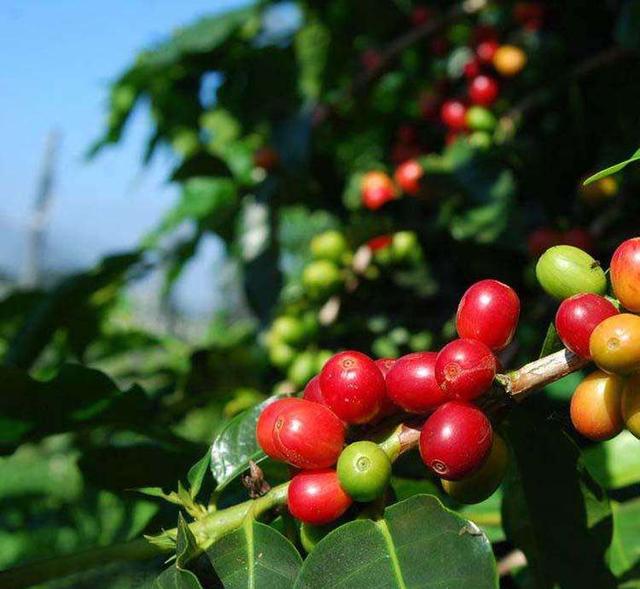
The price of Jamaican Blue Mountain Coffee is over 10,000 per barrel.
After all, the unit price of Jamaica Blue Mountain is so expensive. With the standard of more than 10,000 a barrel, not all players can enter the venue and transport the whole cabinet back to China.
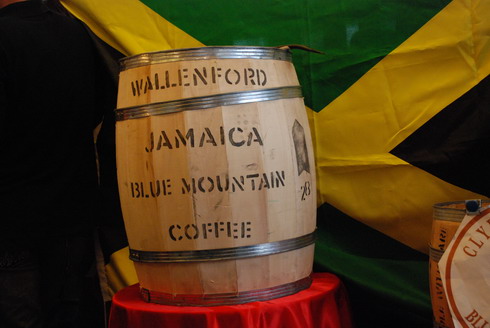
So where do the main players of Jamaican coffee come from?
In 2015, the top 10 players are as follows:
First place in Japan, 366 tons (won the championship overwhelmingly for 5 years in a row)
The second place in the United States is 94 tons.
Third place in the UK 32 tons
Fourth, Germany 17 tons.
Fifth Belgium 16 tons
South Korea ranked sixth with 10 tons.
No. 7 Sweden 6 tons
No. 8 Canada 4 tons
No. 9 China 2 tons
No. 10 Chinese Taipei 2 tons
Why is the Jamaican Blue Mountain so popular and popular?
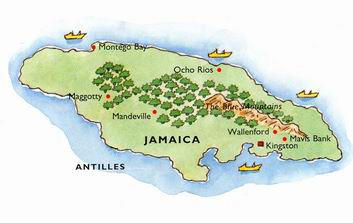
The Blue Mountains are located in the eastern part of the island of Jamaica, hence its name because it is surrounded by the Caribbean Sea. On clear days, the sun shines directly on the blue sea, and the peaks reflect the bright blue light of the sea. The highest peak of the Blue Mountains, which is 2256 meters above sea level, is the highest peak in the Caribbean and a famous tourist attraction. It is located in the coffee belt, with fertile volcanic soil, fresh air, no pollution, humid climate, foggy and rainy all the year round (average precipitation of 1980 mm, temperature of about 27 degrees). This climate and ultra-high altitude have created the world-famous Jamaican Blue Mountain Coffee and the second most expensive coffee in the world.
Why are there so many Jamaican blue mountains in China that big supermarkets in Tmall's physical stores on Taobao are pervasive?
First of all, you can pay attention to whether it is written about "Blue Mountain flavor", "Blue Mountain matching" and so on. This is not usually the real Jamaican Blue Mountain, it's just a fringe ball. It is as untrustworthy as Chinese restaurants in Europe, America and Australia.
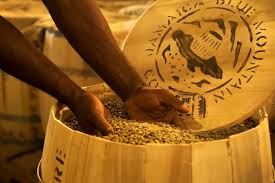
Jamaica Mavis Bank Blue Mountain NO.1 Jamaica Mavis Bank Blue Mountain NO.1
The price of Jamaican Blue Mountain Coffee is over 10,000 per barrel.
After all, the unit price of Jamaica Blue Mountain is so expensive. With the standard of more than 10,000 a barrel, not all players can enter the venue and transport the whole cabinet back to China.
Jamaica Mavis Bank Blue Mountain NO.1 Jamaica Mavis Bank Blue Mountain NO.1
The Blue Mountain legal coffee producing area in Jamaica is constantly shrouded in blue fog, so it is named "Blue Mountain". Blue Mountains is located in eastern Jamaica, across 45 km, 20 km wide, up to 2260 meters above sea level, is the highest mountain range in the Caribbean. The Blue Mountains are covered with fertile soil with excellent drainage and are very suitable for coffee cultivation.
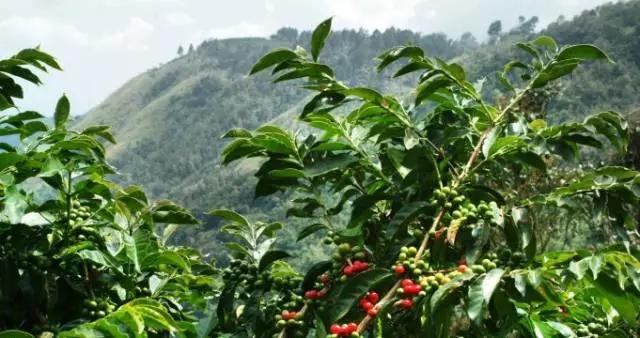
Located in the legal Blue Mountains of Jamaica, Mavis Bank is also one of the raw bean processing plants certified by the Jamaican government, about 10 miles northeast of the capital Kingston, and has been operated by the Munn Family family since 1885.
Originally the Moon family planted and processed the harvested coffee cherries on Strawberry Hill on the west side of the Blue Mountain. The present-day Mavis Bank processing plant was founded by Victor Munn in 1920 and then run by Victor's nephew, Keble Munn. Keble is not only an agricultural operator, but also the first certified cup tester in Jamaica. Mavis Bank is already the largest coffee gathering place in Jamaica, and in order to ensure coffee quality, the processing plant collects raw beans from single farms or small farmers in specific areas of the Blue Mountains. The coffee planting and processing area is located in the mountain area with an average of 1600 to 900m, with sufficient altitude, mild clouds in the afternoon, sufficient sunshine and mineral-rich planting soil to provide good growth conditions for coffee trees. it also prolongs the ripening of coffee cherries.
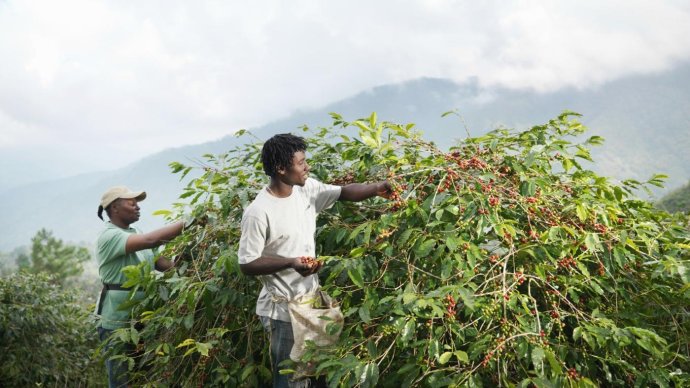
In the raw bean treatment stage, only ripe red fruit is harvested, and then manual selection and floating fruit elimination procedure is the basic condition. Farmers send the remaining coffee cherries to another washing station, and then carry out the second selection, and remove the flesh before the evening. Then carefully sift out any overfermented, unripe or worm-eaten cherries in a large tank before pectin removal. After the pectin is removed, the shell beans are placed on the cement slate and dried in the sun for 5 days, then bagged and stored for at least 10 weeks. Finally, the peeled raw beans will carry out the last procedure of picking defects by hand. Mavis Bank has the most complete raw bean processing equipment in Jamaica and has 6000 farmers. Under the management of the Moon family, established M.B.C.F, a world-renowned, quality assurance trademark.
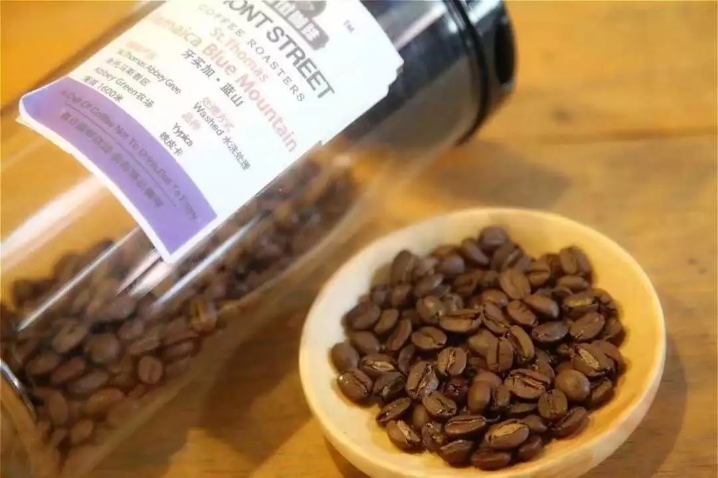
Strictly select No.1 grade blue mountain coffee with a bean size of 17 stroke and 18 mesh and a defect rate of less than 2%.
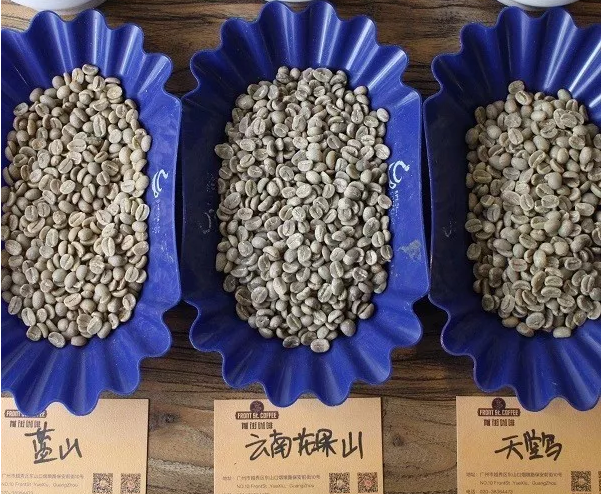
[Qianjie Coffee suggests the way of brewing Blue Mountain Coffee]
KONO filter cup; water temperature: 84-86 ℃; degree of grinding: small Fuji 4 (medium grinding); ratio of powder to water: 1:13-1: 14; extraction time: one minute and 50 seconds.
Original imported BlueMount Blue Mountain Coffee from Jamaica Blue Mountain Coffee beans
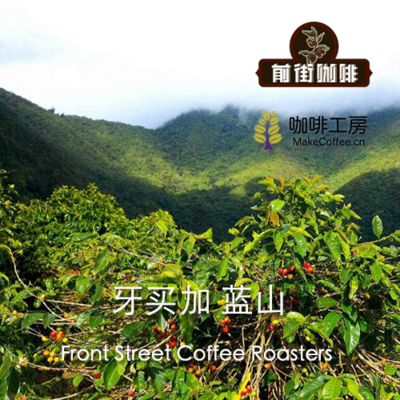
Purchase link: https://item.taobao.com/item.htm?spm=a1z10.3-c.w4002-15673140470.10.6e7aac72rmuIS9&id=541007639512
Important Notice :
前街咖啡 FrontStreet Coffee has moved to new addredd:
FrontStreet Coffee Address: 315,Donghua East Road,GuangZhou
Tel:020 38364473
- Prev
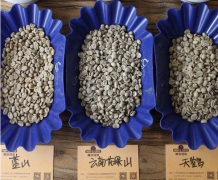
Data | data of total global exports of Jamaica Blue Mountain for the whole year, with a unit price of more than 10,000 per barrel.
According to data from the World Trade Organization and Chinese Customs, the total global exports of Jamaica in the past five years are as follows: 842 tons in 2011, 592 tons in 2013, 692 tons in 2013, 449 tons in 2014, 555 tons in 2015, of which, China's imports in the past five years are as follows: 2011 19 tons, 2012 17 tons, 2013 3 tons, 2014 2 tons 2 tons (all official statistics)
- Next
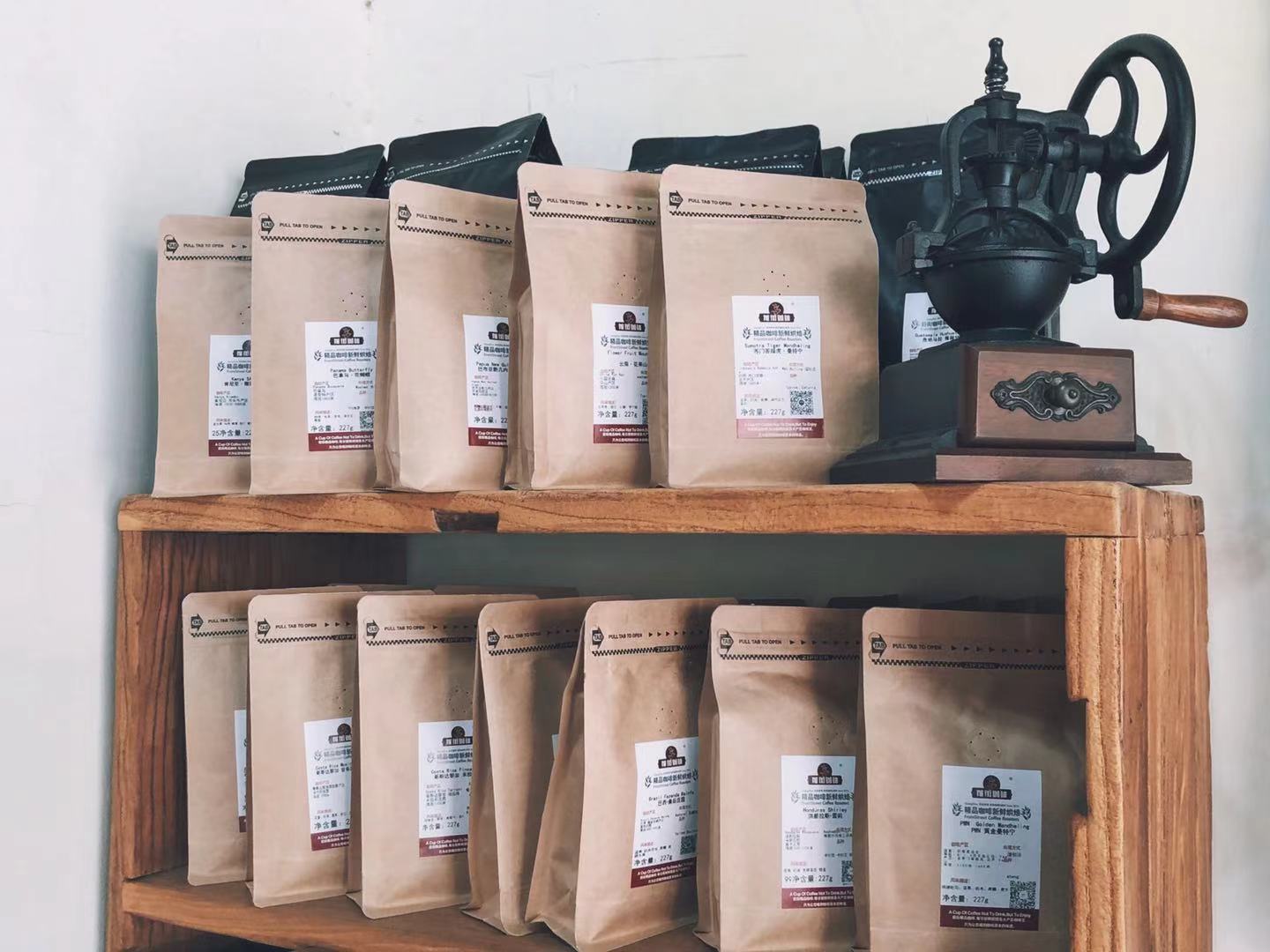
Introduction to the characteristics and Flavor of the Wild Rosa Coffee Bean Gold Standard Red Card in the Coffee Manor of Rosa Village, Ethiopia
For the exchange of professional baristas, please follow the Coffee Workshop (official Wechat account cafe_style). The journey to GeshaVillage began in 2007 when AdamOverton and RachelSamuel helped the Ethiopian government shoot a story about
Related
- Detailed explanation of Jadeite planting Land in Panamanian Jadeite Manor introduction to the grading system of Jadeite competitive bidding, Red bid, Green bid and Rose Summer
- Story of Coffee planting in Brenka region of Costa Rica Stonehenge Manor anaerobic heavy honey treatment of flavor mouth
- What's on the barrel of Blue Mountain Coffee beans?
- Can American coffee also pull flowers? How to use hot American style to pull out a good-looking pattern?
- Can you make a cold extract with coffee beans? What is the right proportion for cold-extracted coffee formula?
- Indonesian PWN Gold Mandrine Coffee Origin Features Flavor How to Chong? Mandolin coffee is American.
- A brief introduction to the flavor characteristics of Brazilian yellow bourbon coffee beans
- What is the effect of different water quality on the flavor of cold-extracted coffee? What kind of water is best for brewing coffee?
- Why do you think of Rose Summer whenever you mention Panamanian coffee?
- Introduction to the characteristics of authentic blue mountain coffee bean producing areas? What is the CIB Coffee Authority in Jamaica?

